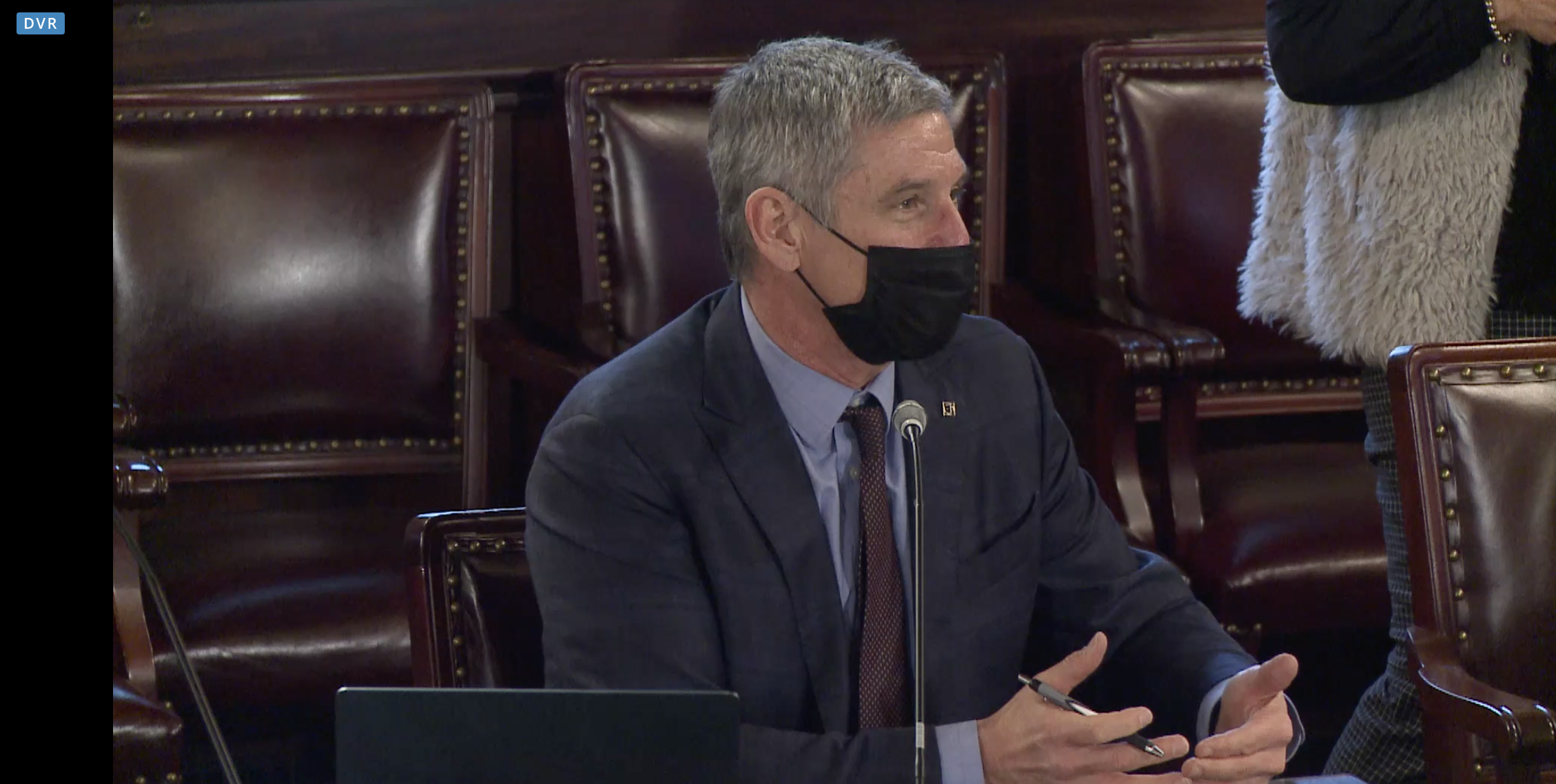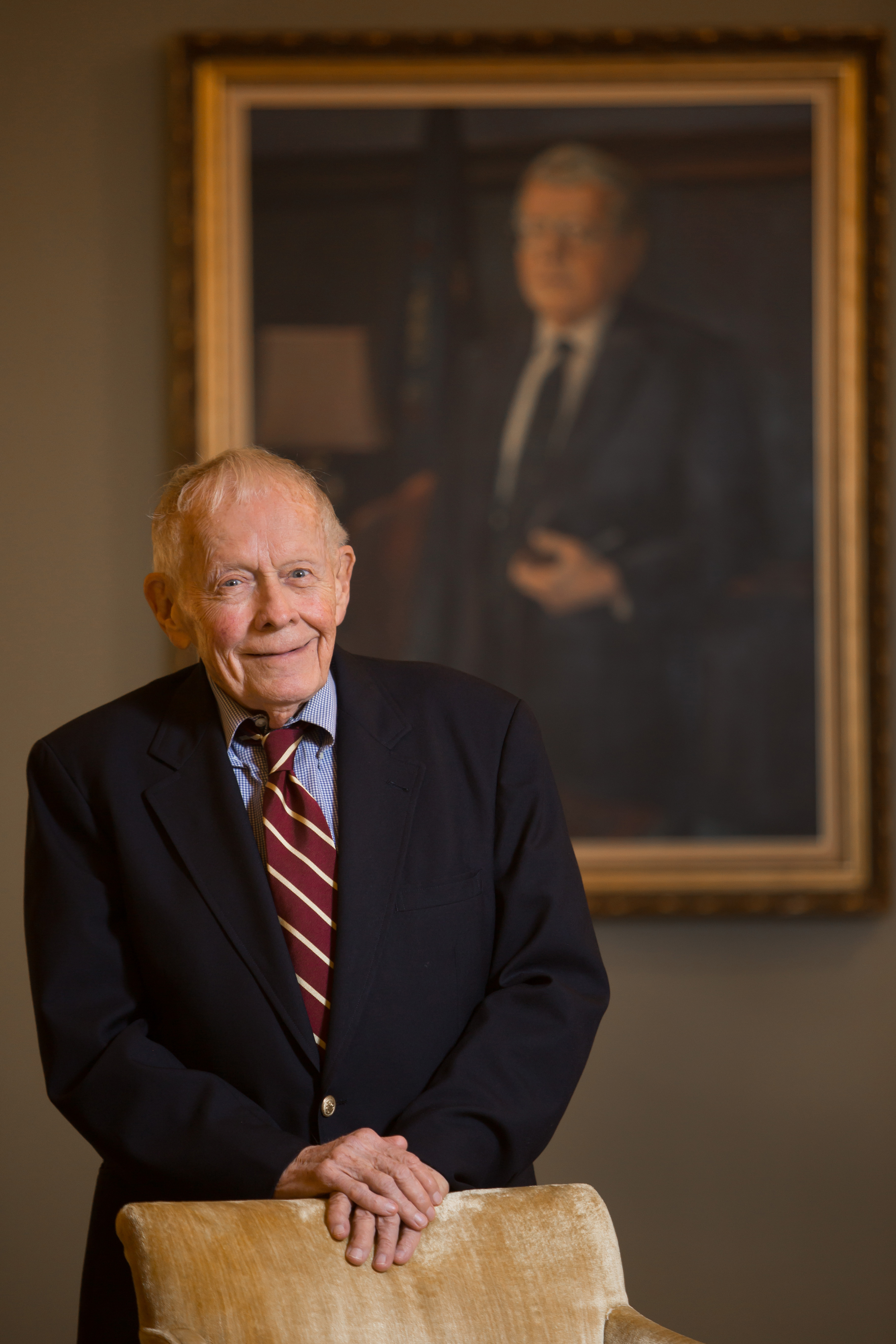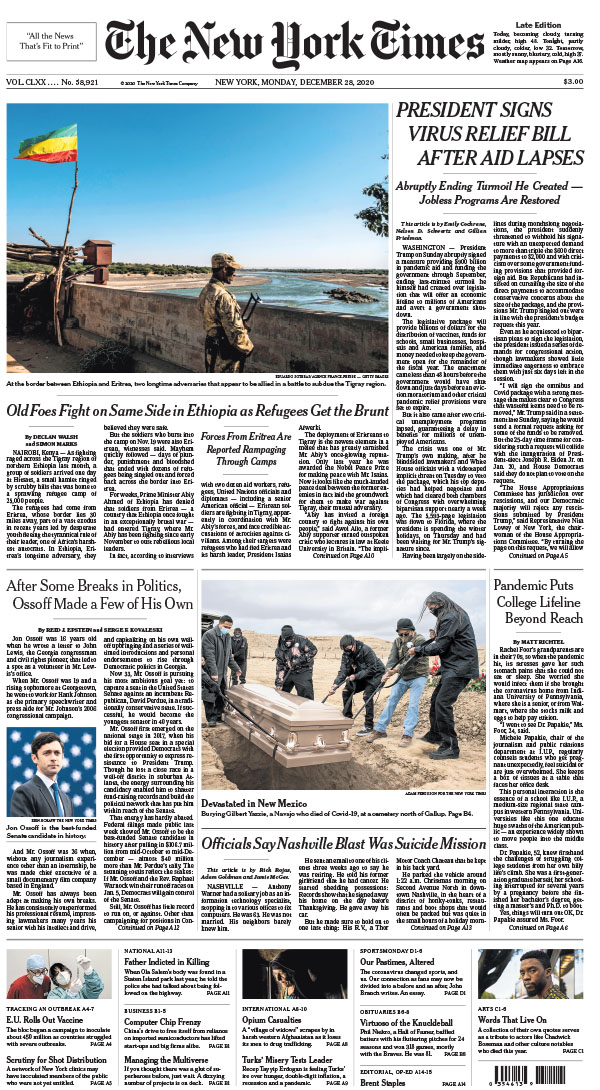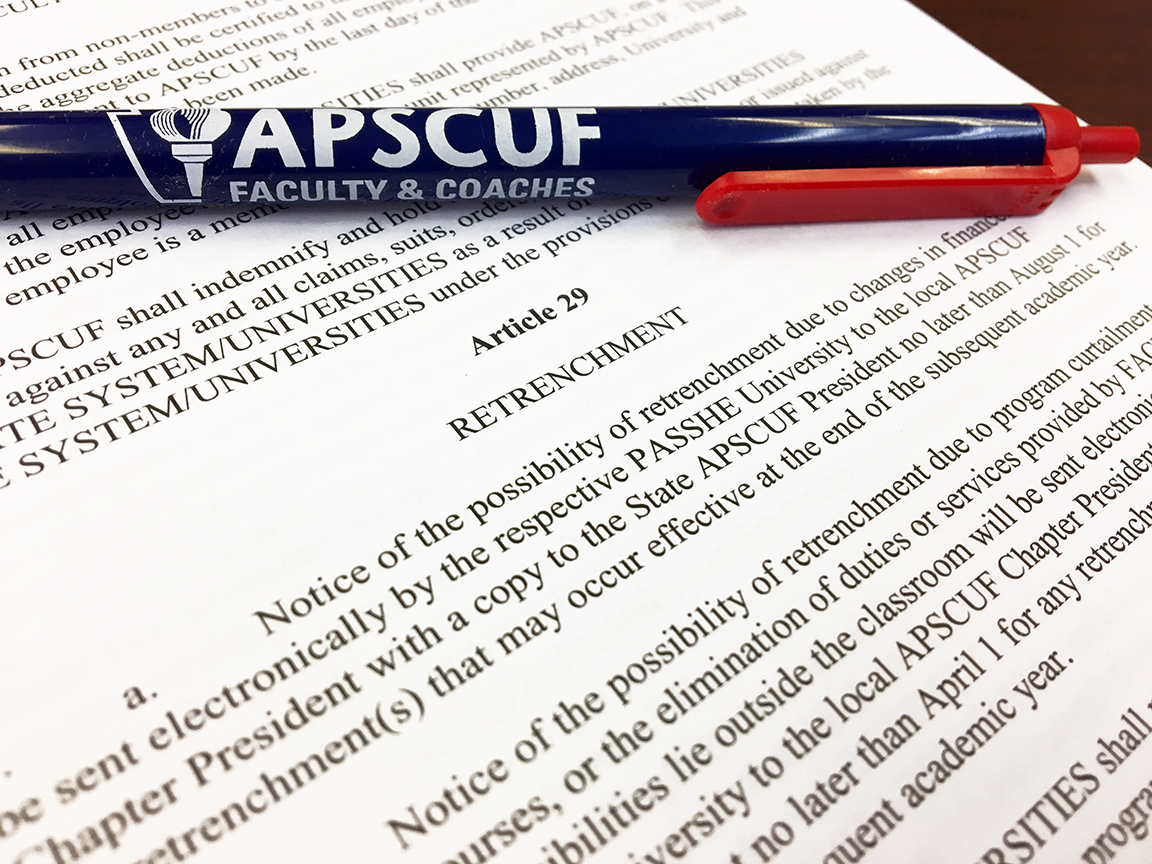Blog
Chancellor updates legislators about redesign, consolidations – February 2021

Photo/Pennsylvania Senate footage
As required by Act 50 of 2020, Chancellor Daniel Greenstein updated legislators about Pennsylvania’s State System of Higher Education’s redesign and consolidation plans at joint House and Senate appropriation- and education-committee hearings today. Click here to watch the full House hearing, and click here to watch the full Senate hearing. Read APSCUF’s collated tweets from the hearings below:
See Dr. Jamie Martin’s remarks to the Board of Governors – Feb. 4, 2021
The Feb. 4 Board of Governors meeting took place via Zoom and streamed via YouTube. Below are APSCUF President Dr. Jamie Martin’s comments as prepared.
Chairwoman Shapira, Chancellor Greenstein, governors, presidents and guests,
It goes without saying that there is a lot going on in our State System and at our universities. Our university presidents and administrators — and our faculty and coaches — are still navigating the COVID-19 pandemic as they try to safely bring our students back to our campuses. Today we will hear more about the consolidation planning process involving six of our universities and learn who will lead Lock Haven University. Also to be discussed and decided upon is another retirement-incentive option offered to our faculty and coaches. While my colleagues and I are interested in all that will be considered today, I want to focus on the retirement incentive program and COVID-19. But, like any effective teacher, I will first digress.
Fifteen days ago, on Jan. 20, a new president and vice president were inaugurated. I do not mention this for any political reason; I mention that particular date because it was the one-year anniversary of the first case of COVID-19 being identified in the United States. On Feb. 13, 2020, Chancellor Daniel Greenstein sent a memorandum to the university presidents laying out his expectations for our universities to reach financial sustainability within five years — by 2023–24. On that day, the Centers for Disease Control and Prevention confirmed the 15th case of COVID-19 in the United States. At the April 2020 Board of Governors meeting, the chancellor accelerated the timeframe within which universities had to reach financial sustainability — from five years to three years. He also instructed universities to return the student/faculty ratios that existed in 2010–11 — but now by 2021–22. At this time, the number of COVID-19 cases was approaching half a million.
A number of consequences resulted from reducing the sustainability timeline, and one of those consequences occurred on Oct. 30, when more 100 retrenchment letters were issued to faculty members at five of our universities. These letters notified them that they would no longer have a job — and, by extension, would no longer have healthcare during a global pandemic — at the end of the spring 2021 term. On that date, the number of COVID-19 cases had risen to 8.9 million, and more than 200,000 U.S. citizens had died of the virus.
I now return to the two issues: COVID-19 and the retirement incentive. If this incentive program is approved by the board, faculty and coaches will have until March 15 to submit letters of their intent to retire by June 30, 2021, in order to receive the full incentive. This incentive program is extended into the next academic year, with coaches and faculty being eligible for a reduced incentive if they retire by June 30, 2022.
Our hope is that APSCUF will be able to work with the Office of the Chancellor to help individuals who are facing retrenchment to transfer into faculty positions that will result from retirements at other universities. We are anxious to work on this with the State System, but we fear that time is not on our side. Until March 15, we may not know who or how many faculty and coaches plan to retire by June 30. The date for retrenchment is June 4, 2021.
I don’t think that any of us could have predicted the breadth of this pandemic. Chancellor Greenstein did not have a crystal ball to look into when he made the decision to shorten the time frame for our universities to reach financial sustainability. But we have a clearer picture now. There have been more than 26.5 million cases of COVID-19 in the U.S. and nearly 450,000 deaths. But, there is hope: Two different vaccines are now being administered, with a third on the way. There is a glimmer that our lives may return to some version of normal later this year. Still, nearly 100 faculty face losing their jobs and their healthcare in early June.
What I am asking all of you to consider is this: Give us more time. Give us additional time so that we can help our colleagues find opportunities to transfer to another university in our State System. Give those who will not be able to continue working for the State System the chance to seek a job elsewhere — and to be able to go on interviews, find a new home, and make a move when it is safe to do so later this year. Give all of them the safety net of having healthcare coverage until this pandemic is, at least, in the rear-view mirror. The retirement incentive program extends into the next academic year, and we can use that time to continue to work with the State System to meet the chancellor’s ratios. If our universities had one more year to reach financial sustainability, I am confident that we can align our workforce through retirements, transfers and attrition.
The chancellor and I do not agree on everything, but I know we agree that both of us are committed to Pennsylvania’s State System of Higher Education, we both want to see it flourish, and we both care deeply about our students. All of this is true for all of you on the board, our university presidents and all of my colleagues. Our students have endured a lot in the last year and are again facing a challenging spring semester. I believe that, by working together, we can ensure that when our students return to campus in the fall, they will find the stability and tranquility that they need — and deserve.
Thank you for your time and consideration. I again wish all of you and your loved ones continued good health.
Faculty ‘have power and responsibility,’ late APSCUF president said

Dr. John Pierce Watkins was a former president of APSCUF and California University of Pennsylvania.
Photo courtesy of Cal U
APSCUF is mourning the loss of past President Dr. John Pierce Watkins, who helmed the organization from 1972 to 1973. He died Jan. 28. Click here to read the former California University of Pennsylvania professor’s obituary.
Watkins led APSCUF during its nascent years as the bargaining agent for faculty members at Pennsylvania’s state-owned colleges and universities. He resigned after his appointment as vice president for academic affairs at what then was California State College. Watkins went on to lead Cal U as its president, from 1977 to 1992, supporting faculty and coaches alike.
“If you have good teachers, you are going to have academic success, and the same holds true for athletics and good coaches,” Watkins, a Cal U graduate himself who was inducted into the university’s Hall of Fame, said. “We have hard-working coaches here who are teachers in a sense and they care about the students.”
APSCUF awarded him its Distinguished Service Award in 1991.
“People ask me all the time to comment on the difference between faculty organization and faculty governance before and after collective bargaining,” Watkins said in an archived APSCUF interview. “And my answer to that is it requires the faculty to understand that for the first time they really do have power and responsibility. … The first contract, I think, was an inspired document. In the years intervening, it’s gotten bigger, but I think that the superstructure of that Red Book, the first contract, remains intact in that collective bargaining agreement. … I simply feel that the collective bargaining agreement negotiated in Pennsylvania was the finest collective bargaining agreement ever negotiated in higher education in this country. And the people who get credit for that, were, of course, the folks on the negotiating team, the members of APSCUF at that time, which had to ratify the contract, and the 14 faculties. … And I think it stood the test of time. I really believe it has. And to have been a part of that, was fascinating for me.”
In 2017, Watkins reflected on his time with APSCUF. View the video, shown at APSCUF’s 80th-anniversary celebration, below:
Have a Watkins memory to add to this post? Email it to . Please include your name and university.
News and notes: January 2021
Some links of note, as we begin the new year:
- Spotlight PA is slated to interview State System Chancellor Daniel Greenstein 5 p.m. Wednesday, Jan. 13. “The state’s system of higher education is facing unprecedented challenges as it copes with the coronavirus pandemic, a major plan of consolidation, and ongoing criticism for how it responds to racism on its many campuses,” promotional information from Spotlight PA reads. Submit questions prior to the event to and register to watch live via this link. The event will be recorded.
- APSCUF members: As you prepare to watch the interview, you may wish to visit our integrations information page, available to APSCUF members exclusively in a secure area of our website. View this members-only resource (login required*) via this link or via the “Issues & Advocacy” dropdown menu.
* LOGGING INTO THE APSCUF WEBSITE:
APSCUF upgraded its website in summer/early fall 2016, and unfortunately we were unable to move the usernames and passwords with us. Thus, if you haven’t logged into the website since that time, you’ll need to create a new account. Website accounts are unrelated to your time as an APSCUF member; members must create their own logins. Once you’ve registered, it will take up to 24 hours for the login to activate. (We verify all information for security purposes.) If you’ve forgotten your password, you can reset via this link. If you do not receive your password-reset email promptly, please check your spam filter; we have received some reports of the email being diverted there.
For your reading:
 Pulitzer Prize-winning New York Times journalist Matt Richtel wrote about financial issues and cuts at Indiana University of Pennsylvania. He spoke with APSCUF President Dr. Jamie Martin and APSCUF State Secretary Dr. Michele Papakie, both IUP faculty members. Click here to read the news article, published on the front page of the Dec. 28 New York Times. The Times accepts reader feedback via this page.
Pulitzer Prize-winning New York Times journalist Matt Richtel wrote about financial issues and cuts at Indiana University of Pennsylvania. He spoke with APSCUF President Dr. Jamie Martin and APSCUF State Secretary Dr. Michele Papakie, both IUP faculty members. Click here to read the news article, published on the front page of the Dec. 28 New York Times. The Times accepts reader feedback via this page.
In response, Yale-educated Ryan Craig, author of “A New U: Faster Cheaper Alternatives to College” contributed an opinion piece to Forbes titled “Stop Romanticizing Failing Colleges.” “In the Times article, Dan Greenstein, the Chancellor of PASSHE, comes across as a budget cutting monster who ‘did not respond to request for additional comment,’” Craig wrote. “But I know Dan, and few people think more deeply about the future of American higher education.” Forbes accepts general editorial feedback via .
Chancellor Daniel Greenstein shared the link to the Forbes opinion piece in a two-part tweet:
2/2 Another story? about:
– people working together @IUPedu & across @statesystem, looking ahead w/ creativity, integrity, vision, courage
–@PresDriscoll
– making hard decisions now so #highered serves PA in future;
– heroes USA needs, healing not dividing; rebuilding— Dan Greenstein (@dan_greenstein) January 9, 2021
No new retrenchment letters, but more than 100 colleagues still in peril
 This week’s retrenchment deadline passed with no new letters, but APSCUF continues to fight for the more than 100 faculty who have received letters thus far. Click here to read today’s release.
This week’s retrenchment deadline passed with no new letters, but APSCUF continues to fight for the more than 100 faculty who have received letters thus far. Click here to read today’s release.
Click here to learn more about how students, alumni and university communities can fight retrenchment. #CutsHurtStudents
Members may click here for a members-only retrenchment toolkit (login required).